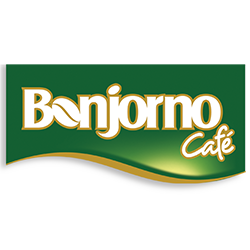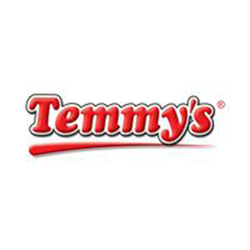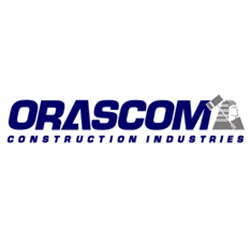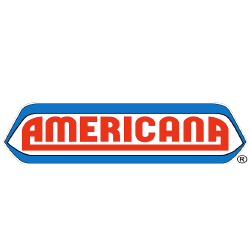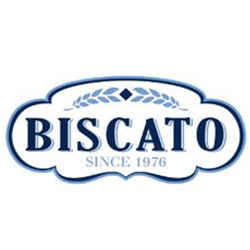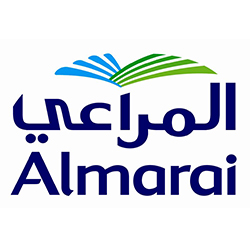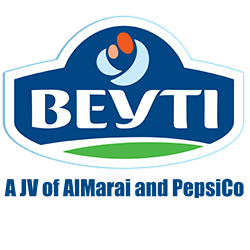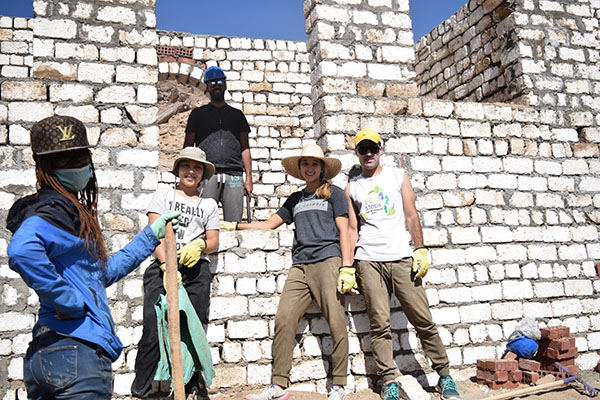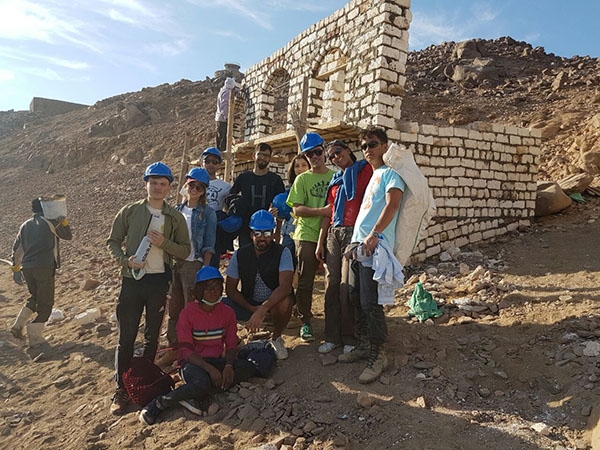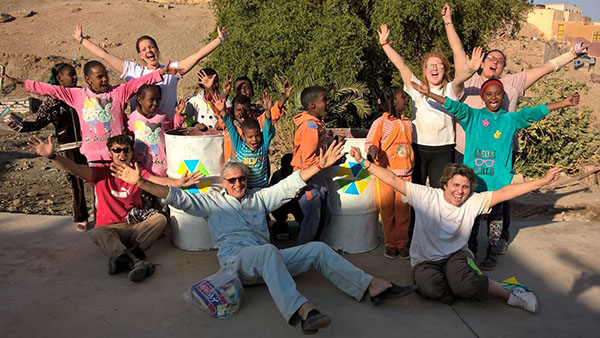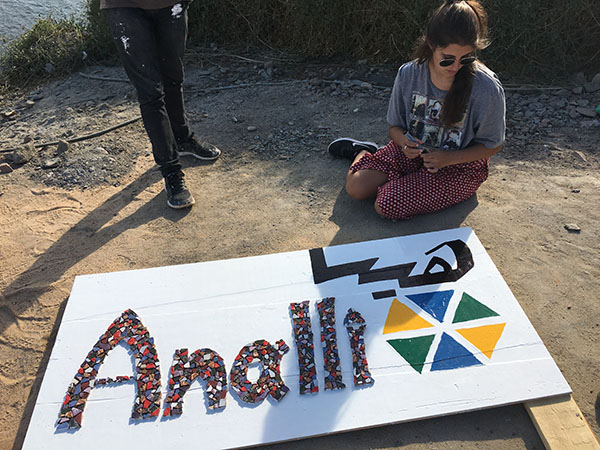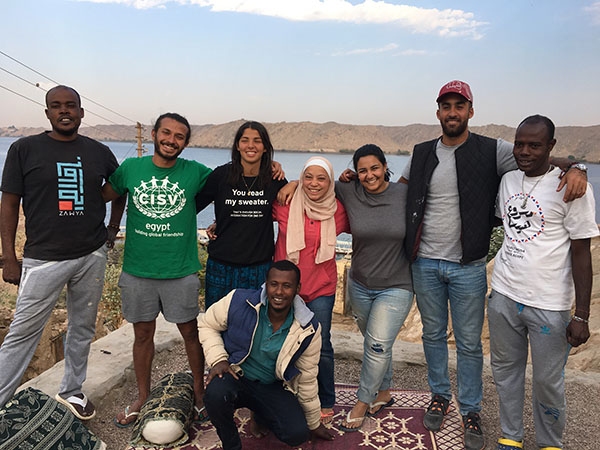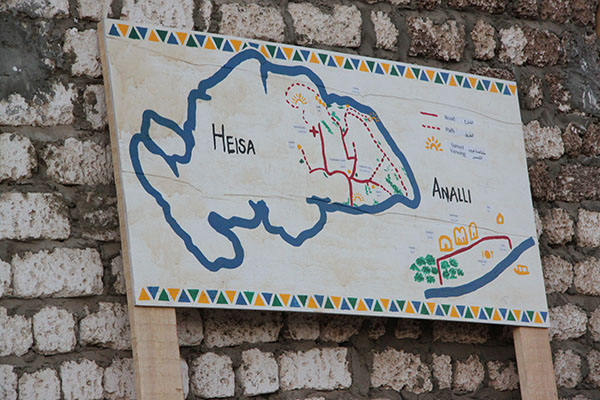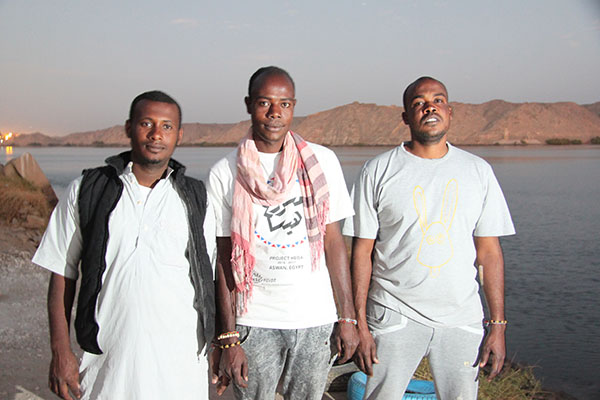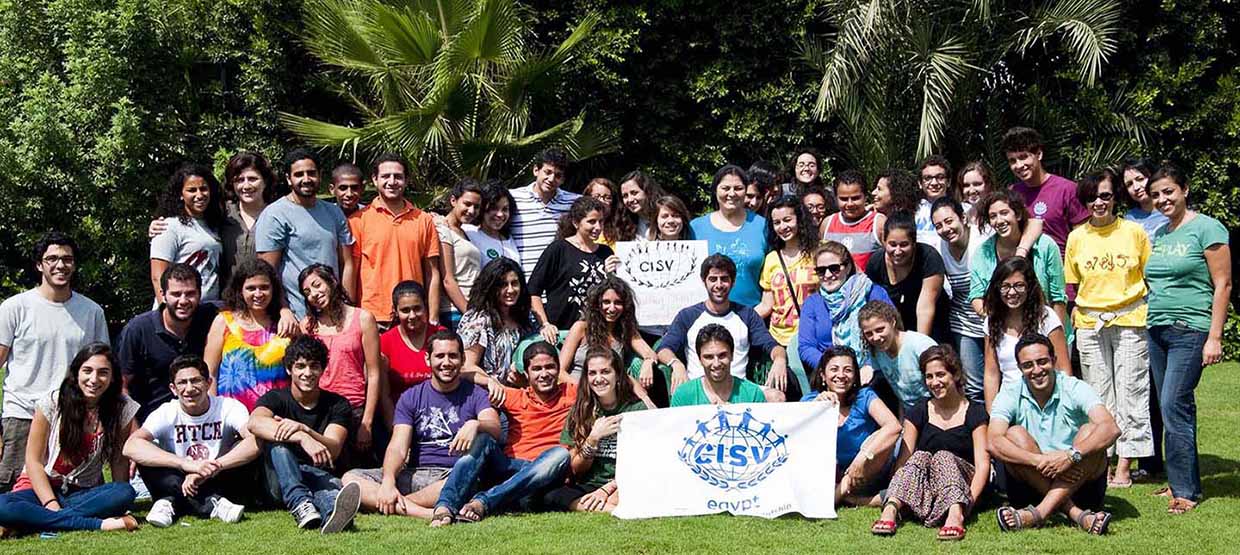
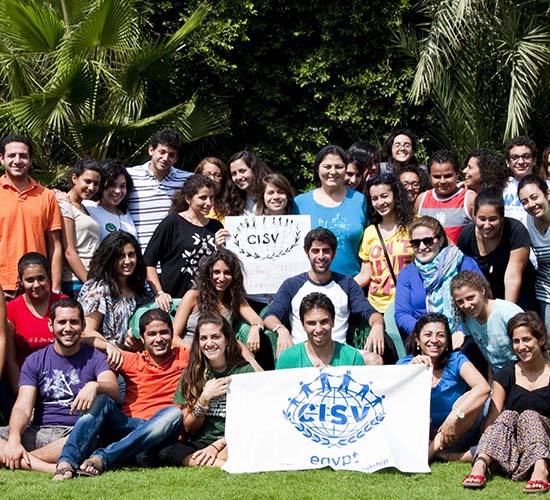
Project Heisa
“Never doubt that a small group of thoughtful, committed citizens can change the world; indeed, it’s the only thing that ever has.” –Margaret Mead
Like many people, I have heard this quote my whole life, but until I participated in Project Heisa (the CISV Egypt International People’s Project (IPP) in Aswan, Egypt) I didn’t believe it to be true. In the winter of 2016/2017, twenty-seven people from twelve different countries arrived in Aswan, Egypt with a mission. Our group was from such diverse places as Brazil, Canada, Cote D’Ivoire, Colombia, Egypt, France, Georgia, Italy, Mongolia, Spain, Sweden, and USA. We were here to participate in a three week intensive volunteer project. The aim was to help a local organization build a cultural center to keep their Nubian language and cultural practices alive. Moreover, though, our aim was to learn about the global context that this project resides in through living, working and learning from each other and the local organization. In the end, we accomplished even more than we set out to do.
Project Heisa was designed to create a cultural center on the island of Heisa, a Nubian community residing in what is now the Aswan Water Reservoir on the Nile. When the reservoir and hydroelectric dam were built in the 1930s, the project dislocated the vast majority of Nubian people inland to new housing projects in order to clear the area that would be flooded. One of the results of this has been the separation of the Nubian community and expedited integration into Egyptian culture as they moved away from their traditional territories. Nubian culture is distinct, with it’s own language, art, celebrations and customs. They are famous for their hospitality and gentle lifestyle. With the movement, their culture has struggled to preserve itself. The locals of Heisa were one of the few communities not to be relocated. Because of its higher elevation it was possible for those living there to move to higher ground. Although their homes were still flooded they did not need to find new territory or move away from the Nile. This sustained connection with their home means Heisa has a unique position as a place for cultural and language preservation for Nubia.
When we arrived on Heisa, we were greeted by two brothers Besees and Anatout, and their cousin, Rafaat. These three young men had started working towards their dream of a cultural center a long time ago, and had now invited us, through CISV, to come help them make it a reality. The bones of the project were already in place and we were there to bring as much of it to life as possible. They had already started construction of the buildings, incorporated it as a non-profit and began planning the types of workshops and events they wanted to hold. Our group was split into three teams; waste management to address the islands lack of a garbage disposal plan, business development to address the organizational and planning needs of the center, and construction which got down and dirty to build the workshop building. The brothers, as we affectionately called Rafaat, Besees and Anatout, shyly told us some of the things they hoped to accomplish and off we went.
In order for the project to be a success, we had not only gathered our group but the support of several sponsors and personal donors from the CISV community. Through the generous donations of food, equipment and money our sponsors assisted to bring the project into existence. Sponsors such as Pyramid Hills, Orascom Construction, Americana, Maraai and Bonjourno made this possible. We, and the island of Heisa, thank them for their kindness. Without their donations we would not have been able to attend and work alongside this project.
We began planning our days and making lists of goals to accomplish. We gathered waste, wrote management plans, and moved bricks. Since we were living in the community, our work and rest seemed to drift into it self. Our days started with breakfast on the patio, moved on to a full work day, returned for free time and a meal, and then hunkered into a presentation from one of our participating countries on the theme. Each part of our day exposed us to something new, whether it was a new food, challenge, person, history or idea.
Immersion is the word that comes to mind as I think about this project. We lived together, two to eight people in a room, our beds only a suitcase width apart. We shared two bathrooms between all twenty seven people, and when one of them backed up, we shared one. We shared meals together, finding ways to split what we had to ensure enough for all. We worked together, planning and executing our actions. In the evenings we learned from each other. We went on out trips, swimming days and walks around Heisa together. We explored, developed and had realizations together. Sometimes we fought together, but then again, what family doesn’t, and in many ways we were a family.
Our project took many unexpected turns. From rising waters threatening to take away our building supplies, to cultural clashes in communication and time management, things came up that shifted our progress and planning. We had to become flexible, even adaptable. We learned that change is not static, it jumps around like a bucking bronco and sometimes you steer it and sometimes you just hold on. But we did hold on.
When I look at the photos and original snapshots of where we started, I am amazed by what we left behind. We started with two small buildings, and ended with a plumbed, wired guesthouse and workshop building. We started with three brothers who had an idea, and left with a full business plan including scheduling, financing, planning and an income strategy. We left a website, map of the island, signpost and a trained management team for the center. We started with a waste management problem and left the community with a plan, collection system, local government cooperation for pick up and an education program for the school. We even left the children with a few new songs.
We had set out to put Heisa on the map as a cultural center. Through social media and website development, it is now possible to tag ones location on Heisa in Instagram and Facebook. With the path marked and the location settled, we are honoured to have named the center Analli. In Nubian, this means to see. The name refers to Analli’s ability to provide guidance, it’s function as a cultural lighthouse to the Nubian community.
Working in the context of cultural and language differences, I saw the change process in a different way. I saw that I can’t always control or understand it, and I can’t always predict an outcome. I saw what can be done when a group of people is willing to lean into the discomfort of change and stay committed. I saw that it is possible to bring to life dreams.
The project has officially ended now, and we have gone home. But it is not over. It is now two full months later and we are still connected to the work and each other. Through modern communication tools like Facebook and Whatsapp, we are in almost daily communication with each other. Analli continues to be built and developed. Our waste management team still send each other ideas and links to waste management projects. The business management group is finalizing a website. Rafaat, Anatout and Besees still excitedly check in with us and send messages. We have begun something that we will all be connected to for a long time to come.
This project started as two brothers, added a cousin, brought in a community and invited the world. In three weeks, we accomplished something that would take a government or large organization years to do. I think I have been shown what it really takes to create change, both personally and in a community. It takes citizens, dedicated and thoughtful citizens, willing to experience discomfort for a goal. As hard as it is to believe sometimes, that’s the only thing it needs.
By: Isha Matous-Gibbs
IPP Project Heisa Participant – CISV Canada
Thanks to our sponsors
Main sponsor:
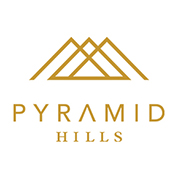
Other sponsors:
